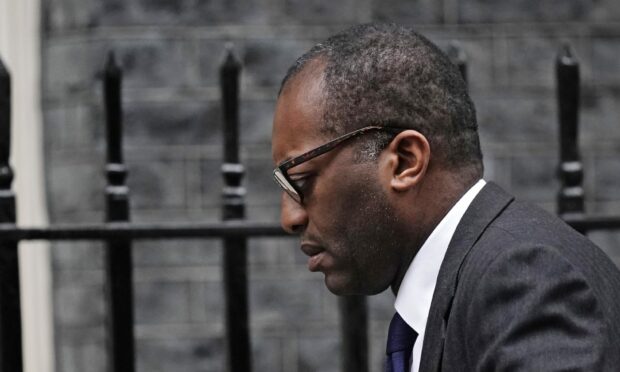Liz Truss’s controversial tax plans won’t do much to improve the UK’s financial situation, a Dundee University economics expert warned.
Professor Morris Altman, who chairs the university’s school of business, assessed the damage amid warnings Britain faces £18 billion in cuts to balance the books.
The government sparked fury across the board earlier this month when the Chancellor, Kwasi Kwarteng, unveiled £45 billion of tax cuts in his mini-budget.
He was eventually forced to walk back on plans to abolish the 45p tax rate for the richest after widespread backlash.
Prof Altman said: “If you look at the evidence, simply cutting taxes never acts as an engine of growth.
‘Need to invest’
“If you want to grow, you need to invest money so you can have infrastructure which creates an environment for more growth to take place.”
Mr Kwarteng’s mini-budget forced an extraordinary intervention from the Bank of England and it’s feared a wave of austerity could follow.
The Institute for Fiscal Studies warns £18 billion in cuts could be needed to help balance the books.
Prof Altman said Mr Kwarteng’s failure to lay the groundwork for his financial plans helped spook the markets last week.
He said: “The markets reacted badly because the government didn’t provide any evidence for their policies. That freaked out a lot of people.”
The chancellor’s plans were repeatedly defended by Scottish Tory leader Douglas Ross, who urged the SNP to follow suit.
Senior Conservatives warned taxpayers and businesses could potentially flee Scotland if rates were too high north of the border.
But Prof Altman said higher taxes don’t automatically stop the economy from growing if a government invests wisely.
He told The Courier: “If you look at the data on tax-rates and growth, some of the highest taxed countries in Europe are among the fastest-growing. Taxes that are wisely spent help spur growth.”
‘Volatile time’
Professor Keith Bender, from Aberdeen’s business school, was also gloomy about the likely fortunes of the UK economy.
The economics expert said the country could be in for a “volatile time” as inflation remains high and interest rates rise.
He claimed the botched 45p tax rate cut which the government backtracked on was only a small part of the chancellor’s financial package and would have been unlikely to fuel growth.


